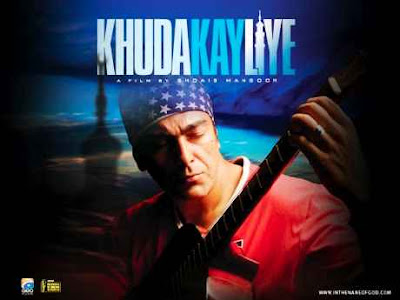
ISLAMABAD (AFP) — As tensions mount between India and Pakistan, the release in both countries of a Pakistani film about a young boy held in an Indian jail is being hailed as a welcome boost for cultural ties.
The movie, "Ramchand Pakistani," which opened in Pakistan on August 1 and in India on August 22, could also help revive Pakistan's flagging film industry after years in the shadow of India's hugely successful Bollywood.
Based on a true story, it follows the lives of Ramchand, an eight-year-old Pakistani boy, and his father after they accidentally stray across the frontier in 2002 and are imprisoned by India.
"I see the film as being a humble yet significant contribution to the ongoing peace process," Pakistani producer Javed Jabbar told AFP, referring to the peace process launched by the South Asian neighbours in 2004 after more than 60 years of tension and three wars.
The film's release comes with relations between Islamabad and New Delhi at a new low, following a recent series of clashes between their troops on the ceasefire line in the disputed Himalayan territory of Kashmir.
Indian officials also accused Pakistan of masterminding the deadly bombing of the Indian consulate in Afghanistan on July 7, which left around 60 people dead, including India's defence attache.
"The values that the film promotes are of compassion, respect for each other, peace and friendship. And I think that kind of message will convey a great deal to people in India and Pakistan," said Jabbar, who was the information minister in slain former premier Benazir Bhutto's first government and again from 1999-2000.
Directed by Jabbar's daughter Mehreen, "Ramchand Pakistani" touches on an important topic in Indo-Pakistani relations -- the fate of hundreds of prisoners held on either side of the border.
Hundreds have been freed by both countries since the peace process began but many remain in prison.
Ramchand, the film's eponymous young hero, comes from Pakistan's minority Hindu community and lives in the remote desert region of Rajasthan.
He strays over the border when tensions between India and Pakistan almost brought the two countries to war six years ago.
Indian troops arrest him and his father, who comes to search for him, and the film then follows them as they spend years in an Indian jail.It also tells the tale of his mother, played by Bollywood actress Nandita Das, as she searches for them.
"Ramchand Pakistani" will show on around 100 screens in India and 15 in Pakistan, the distributors say.
Cultural links, especially movies, are one of the key "confidence building measures" included in the slow-moving peace Indo-Pakistani peace process.
Pakistan banned Indian films in 1965 after the second of its three wars with India since the partition of the subcontinent in 1947, but authorities have recently relaxed the rules.
The film follows on the success of another Pakistani movie, called 'In the Name of God", about the dilemma faced by moderate Muslims in a world obsessed with Islamic militancy.
Pakistan's film industry has tried, and failed, for years to emulate Bollywood, but now people in Pakistan are seeing this new trend of high-brow movie-making as possible salvation for home-made movies.
"Our film industry is only going to work if we change our focus towards thought, not only towards glamour and Bollywood style," said Ahsan Khan, a Pakistani film star. "That's when it's really going to work."
"Ramchand Pakistani" and "In the Name of God" were both largely foreign funded, and filmmakers in Pakistan say until the government and private investors contribute it will be difficult to follow in their footsteps.
Much of Pakistan's Lahore-based movie industry -- nicknamed "Lollywood" -- still uses equipment from almost half a century ago.
"Those who manufactured our cameras would be surprised to know that we are still working with their equipment, which deserve to be in museums," said Sangeeta, a director and former film star at a studio in Lahore.
But excitement is already building in Pakistan that cooperation with India in the world of cinema could, despite the current competition, reap benefits.
"In the long run it will bring money, skills and technology which we can use and reinvest to make our films stronger," said Hasan Zaidi, a director who also organises the annual Kara International Film Festival in Karachi.


